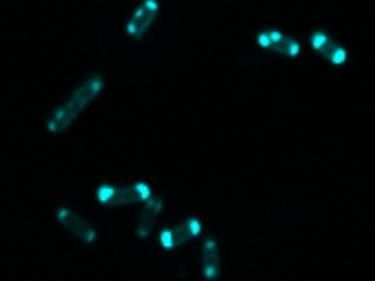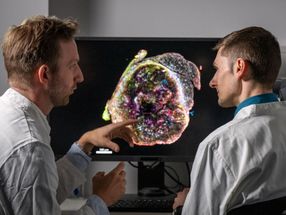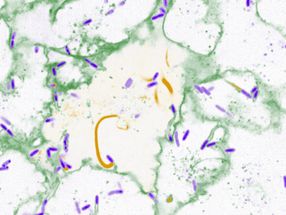Novozymes Discovers New Antibiotic Against Resistant Bacteria
Novozymes' researchers have discovered an AMP - plectasin - that not only is as effective as traditional antibiotics, but also acts on bacterial infections that have developed resistance to existing types of antibiotic. It even acts on bacteria responsible for a disease like pneumonia. The groundbreaking results have been published in the October 13 issue of the internationally renowned scientific journal Nature.
Novozymes' researchers in Denmark and the US collaborated closely on this study with two internationally recognized experts in antimicrobial peptides: Robert Lehrer, M.D., Distinguished Professor of Medicine at the David Geffen School of Medicine at UCLA and Michael Zasloff, M.D., Ph.D., Professor in the Departments of Surgery and Pediatrics at Georgetown University Medical Center.
"Antimicrobial peptides are a new tool to fight infections. Our initial tests show that even bacteria that are resistant to conventional antibiotics can be treated successfully with plectasin," said Per Falholt, Novozymes' executive vice president for research and development. "As the dangers of antibiotic resistance continue to grow throughout the world, it is important to constantly look for new substances and methods to combat potentially deadly infections."
Difficult to provoke resistance
Generally it is extremely difficult to provoke resistance to antimicrobial peptides because it requires the pathogenic bacterium to undergo a number of cellular alterations. By comparison, many bacteria can become resistant to traditional antibiotics through just one or two alterations. AMPs also attack bacteria in a completely different way from traditional antibiotics.
Plectasin a breakthrough for research into AMPs Other companies have sought to identify an AMP for clinical use. With plectasin, Novozymes found a previously unknown AMP that is not subject to the problems that often characterize AMPs. Unlike other clinically tested AMPs, plectasin can be tolerated in high doses, administered intravenously and effectively treat systemic infections.
Strong technological platform
"In particular, it is our strong technological platform in proteins that helped us discover plectasin," said Soren Kjaerulff, director of Novozymes' antimicrobial peptide research department. "Among millions of variants we can effectively screen for and potentially identify other variants that may be even more effective. And we also have the technologies to tailor new AMPs targeted at completely different types of infections."
Novozymes will also be able to draw on its existing technology to produce AMPs because the company can use one of the microorganisms it currently uses in enzyme production. The method makes it cost efficient for Novozymes to produce large amounts of AMP.
Novozymes expects that further development of plectasin and other AMPs will be carried out in cooperation with a partner from the pharmaceutical industry.
Most read news
Topics
Organizations
Other news from the department science

Get the life science industry in your inbox
From now on, don't miss a thing: Our newsletter for biotechnology, pharma and life sciences brings you up to date every Tuesday and Thursday. The latest industry news, product highlights and innovations - compact and easy to understand in your inbox. Researched by us so you don't have to.

























































